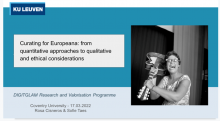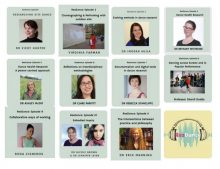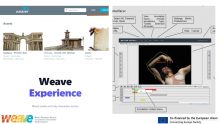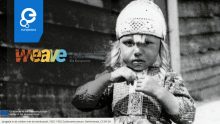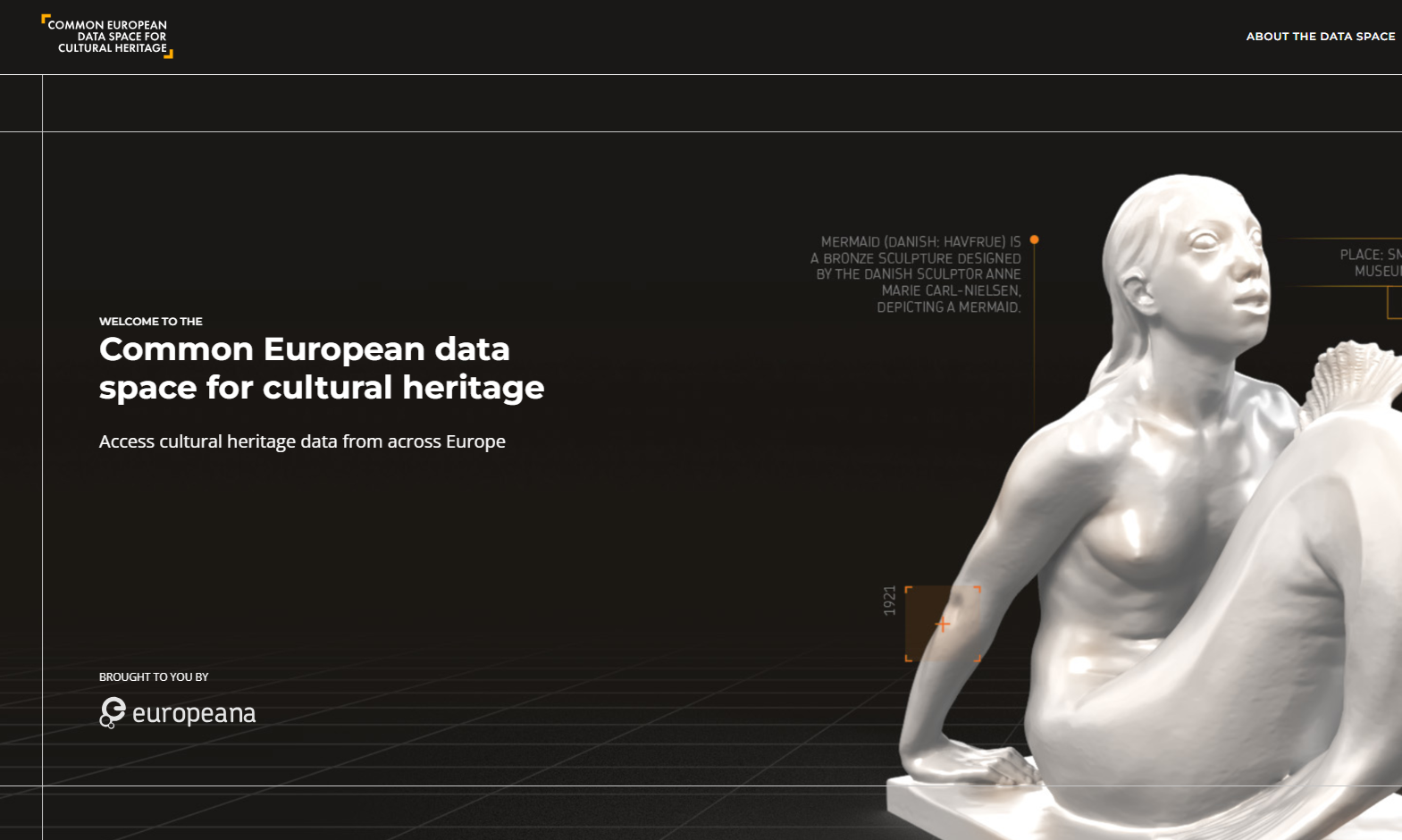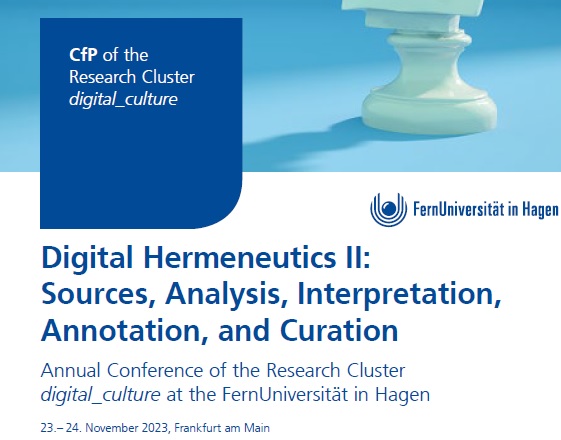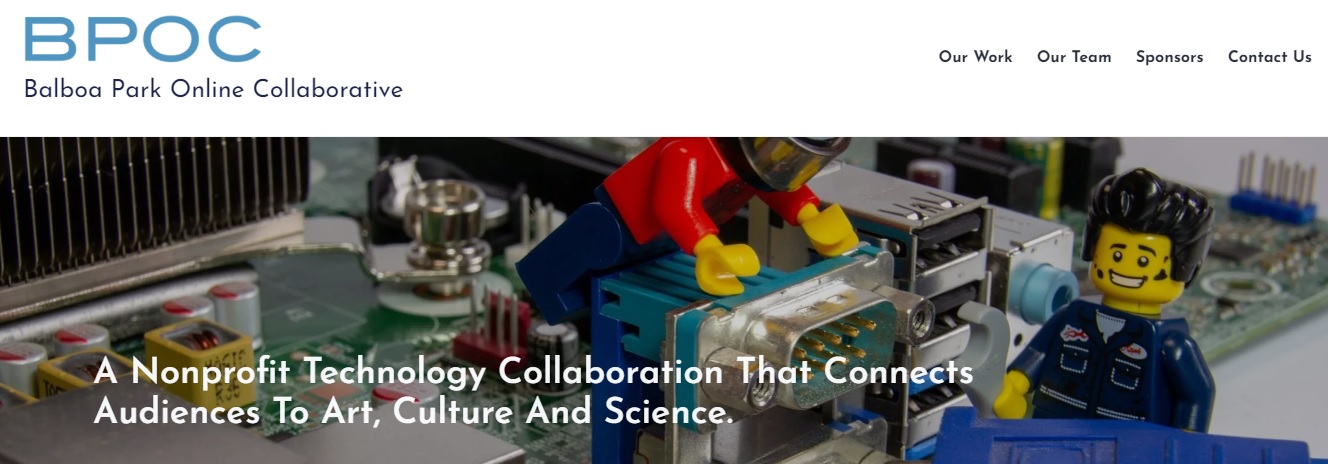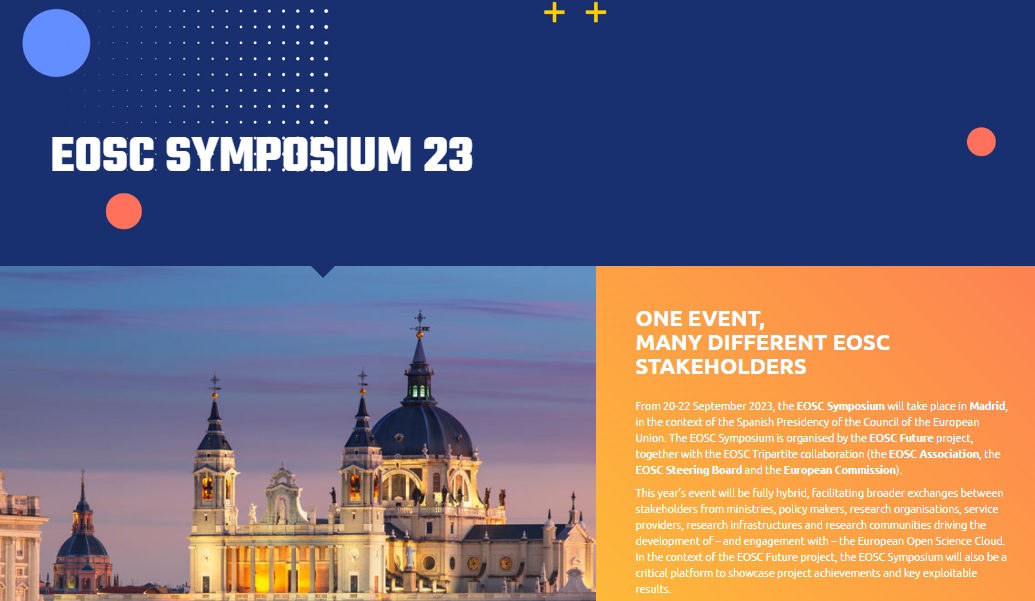text by Mônica Fagundes Dantas, UFRGS and Rosa Cisneros, C-DARE Coventry University.
Carne Digital: Arquivo Eva Schul (Digital Flesh: The Eva Schul Archive) is a digital dance archive about the life and work of choreographer and teacher Eva Schul, consisting of texts, documents, photographs, and videos provided at Lume – Digital Repository of Federal University of Rio Grande do Sul. The archive also contains a Library of Digital Movements, developed through the digitalisation of movements from Eva Schul technique, using motion capture. The Eva Schul Archive is part of the Research Project “Digital Archives in Performing Arts: building memories and technological innovation” and has been developed at the Federal University of Rio Grande do Sul (UFRGS), at Porto Alegre, Brazil. Eva Schul Archive won the “Açorianos” Dance Award 2021 in the category memory. The prize is given from the City of Porto Alegre/Municipal Department of Culture.
The digital archive is organized in sections whose titles refer to Eva Schul’s choreographies. In the corner of time/Biography; How to catch an instant/Choreographies; Metamorphosis/Teachings and Creation Process. It also presents the history of the Ânima Companhia de Dança and the Library of Digital Movements.
In an upcoming Capacity Building WEAVE LabDay, the general coordinator of the archive Professor Mônica Fagundes Dantas will join us to explore some open questions around dance and archives. We will look at themes such as:
- How do we give visibility to the works/archives outside of Europe/North America; the questions related to language (English as lingua franca)
- How do we recognise the social and the personal in the archive? How much can we access the lived experience of social subjects through archival material when the subject might be untraceable or deceased and what is the role of archives in this?
The Eva Schul Archive will be central to this LabDay.
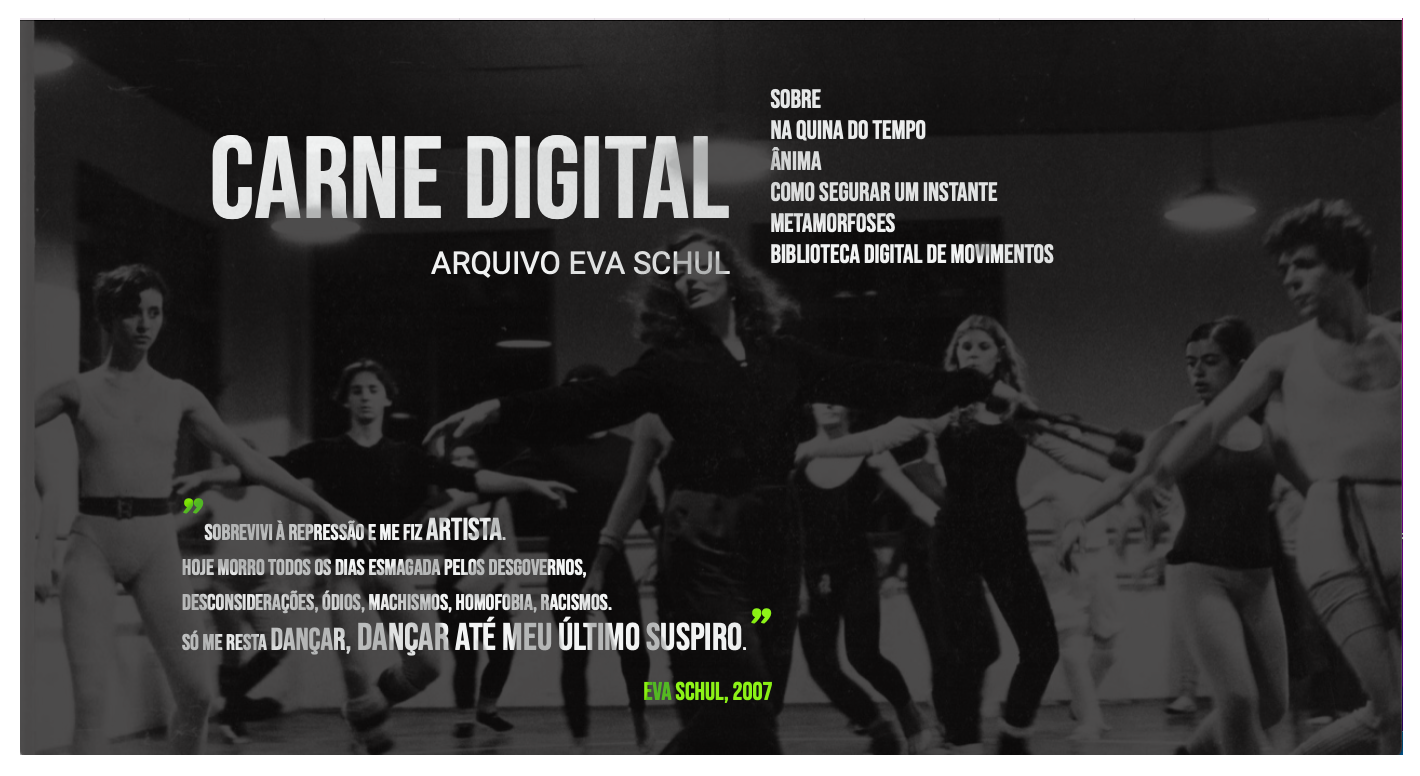
In the current phase, there are three choreographies available, representing different moments in the choreographer’s career: Um Berro Gaúcho (1977) created to the Grupo Mudança; Catch ou como segurar um instante (2002), and Acuados (2016), both created with Ânima Companhia de Dança. By the end of 2022, the cataloging of ten more choreographies is planned.
In 2021 Eva Schul completed 73 years of age and 58 years of dance life, from which stands out the pioneering in contemporary dance teaching, the creation of more than 100 choreographies, the dissemination of creation procedures based on improvisation and collective actions, the training of artists of national and international projection, pioneering the teaching of dance at university, working in management roles and setting up environments for the practice of dance and the arts, and the foundation and maintenance of Ânima Cia. De Dança that carries nearly 30 years of existence.
During the COVID-19 pandemic, Eva Schul continues to teach her dance classes in virtual mode. Unafraid of the body limitations in front of a computer, Eva Schul demonstrates some sequences that she creates for her students in Brazil, and for those who are isolated abroad. In 2021 she also developed a project entirely online, that brought together three dance companies and independent artists in a cast of more than 20 dancers, who were challenged to dance and create choreographies from their own homes.
The elaboration of digital archives in dance must consider the contexts of globalization and the needs of products fabrication that meet the social and cultural demands of Brazil. In this sense, the development of the Eva Schul Archive should be an example of how Brazilian dance practitioners can appropriate technologies for their own benefits, contributing to the construction of memories of the Brazilian scene and expanding the understanding of the cultural role played by the performing arts in Brazil.
The project has been developed with a small budget from CAPES Foundation/Ministry of Education/Brazil, that permits to engage undergraduate and PhD students to work on the archive. The Federal University of Rio Grande do Sul provides access to the Lume – Digital Repertory and hosts the archive on their web system. The Library of Digital Movements is being developed in partnership with Locomotion – Laboratory of Biodynamics/School from Physical Education, Physiotherapy and Dance School/UFRGS.
Team
General coordination: Professor Mônica Fagundes Dantas, PhD
Assistant coordination: Professor Suzane Weber da Silva, PhD
Consultancy: Eva Schul
Digital organization and cataloging: MS Verônica Prokopp
Conception and website creation: Pedro Rocha
Librarian/Reviewer: Ana Griebler
Library of Digital Movements
Assistant coordination: Professor Aline Haas, PhD
Assistant researchers: MS Fellipe Santos Resende, MS Daniel Silva Aires



